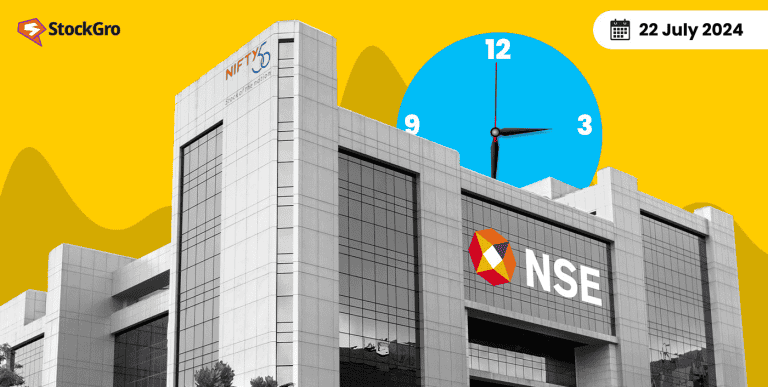
A tech crisis
On July 19, 2024, a global IT crisis struck, causing widespread disruptions across various sectors. Microsoft systems worldwide experienced the dreaded “Blue Screen of Death” (BSOD) due to a faulty update from cybersecurity provider CrowdStrike. Surprisingly, India’s major stock exchanges, the BSE and NSE, emerged unscathed. This article explores how these exchanges dodged the tech bullet despite lower IT spending compared to their international counterparts.
Global impact
The CrowdStrike update caused chaos, with Windows PCs and servers worldwide encountering the BSOD. This critical error brought countless systems to a standstill, impacting essential services such as airlines, banks, and even emergency services. Microsoft Azure and Microsoft 365 services also faced significant disruptions, leaving many businesses in disarray.
India’s resilience
While the global financial markets struggled, India’s BSE and NSE continued operations without significant issues. Despite the lower IT expenditure, these exchanges showcased remarkable robustness. According to Business Today, the NSE allocates ₹570 crore for IT expenses, a stark contrast to the London Stock Exchange Group’s (LSEG) ₹6,556 crore, NASDAQ’s ₹1,949 crore, and the Hong Kong Exchange’s (HKEX) ₹6,807 crore.
Also read: Hcl tech q1 results fy25
IT expenditure comparison
To put it into perspective:
- NSE: ₹570 crore on IT, total cost ₹3,036 crore, revenue ₹12,692 crore
- LSEG: ₹6,556 crore on IT
- NASDAQ: ₹1,949 crore on IT, total cost ₹23,734 crore, revenue ₹32,574 crore
- HKEX: ₹6,807 crore on IT, total cost ₹69,313 crore, revenue ₹171,575 crore
Despite the significant spending gap, the NSE’s efficiency in handling IT resources allowed it to avoid the disruptions faced by other major exchanges.
Also read: Accenture q3 boosts indian it stocks
Sebi’s role
India’s market regulator, the Securities and Exchange Board of India (SEBI), also plays a crucial role in maintaining market stability. SEBI’s annual IT expenditure stands at ₹93 crore, much lower than the Australian Securities & Investments Commission’s (ASIC) ₹205 crore and the Monetary Authority of Singapore’s (MAS) ₹420 crore. Despite this modest spending, SEBI’s efficient management contributed to the overall resilience of the Indian financial markets.
Also read: It sector in india
System diversity and resilience
Sanjeev Sanyal, a member of the Economic Advisory Council to the Prime Minister (EAC-PM), highlighted the importance of system diversity in maintaining resilience. He noted that a less interconnected system might appear inefficient but is more robust against global disruptions. This principle is a cornerstone of the Complex Adaptive Systems-based approach to AI regulation, which Sanyal advocates.
Broader impact
The global Microsoft outage had far-reaching effects. Industries across the globe, from aviation to banking, faced severe disruptions. Airports experienced flight cancellations and delays, banks struggled with transaction issues, and even TV broadcasters went off-air. Emergency services in several U.S. states reported compromised operations, illustrating the widespread impact of the outage.
Microsoft’s response
Microsoft acknowledged the issue, attributing it to the faulty CrowdStrike update. CrowdStrike CEO George Kurtz confirmed that this was not a cyberattack but a technical fault. A fix was deployed, but the recovery process requires manual intervention, which could take days or weeks for large-scale deployments.
Minimal impact in India
In a joint statement, the NSE and BSE confirmed minimal impact from the outage. Out of over 1,400 trading members, only 11 reported temporary issues, which were quickly resolved. This resilience underscores the robustness of India’s stock exchanges and their disaster recovery plans.
Lessons learned
This incident highlights the critical role of robust IT infrastructure and disaster recovery plans. Despite lower IT spending, India’s exchanges managed to avoid the severe disruptions experienced by their global counterparts. This cost-efficiency and operational resilience are commendable and offer valuable lessons for other financial markets worldwide.
Conclusion
The Microsoft outage serves as a reminder of the importance of system diversity and robust IT management. India’s stock exchanges, despite lower IT expenditure, demonstrated impressive resilience. As global markets continue to navigate the complexities of modern technology, the principles of diversity and efficient resource management will be crucial in maintaining stability and resilience.

